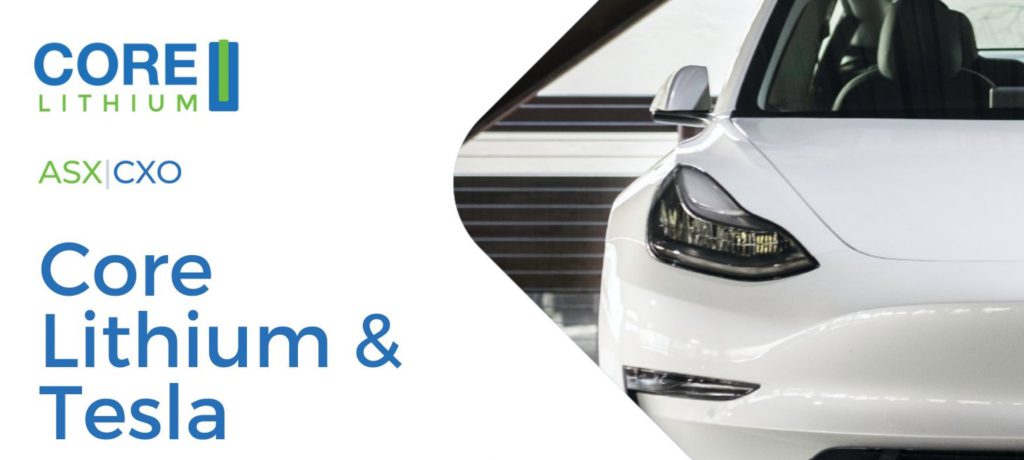Australian lithium producer Core Lithium has signed a supply deal with Tesla. The Northern Territory-based company will provide 110,000 tonnes of lithium-concentrate to the US-based carmaker over a period of four years.
The binding term sheet will specifically see lithium spodumene concentrate from Core’s Finniss Lithium Project make its way to the battery-electric vehicle (BEV) manufacturer as a crucial component in the manufacturing of Tesla’s vehicle batteries.
Core Lithium’s supply to Tesla is scheduled to get underway in the second half of 2023, winding up four years later in 2027, or after the equivalent of up to 110,000 dry metric tonnes of lithium=concentrate has been delivered.
In addition to the supply deal, Tesla has confirmed that it will support further expansion of Core Lithium’s Finniss Project, located near Darwin, Australia. Core Lithium owns 100% of the project, which hosts JORC 2012 compliant mineral resources of 15 million tonnes (Mt) at 1.3% lithium oxide (Li20), and Tesla’s input into the project will focus on development of lithium chemical-processing capacity.
‘Core Lithium are thrilled to have reached this agreement with Tesla and look forward to further growing this relationship in the years to come,’ confirmed Core Lithium managing director Stephen Biggins. ‘Tesla is a world-leader in electric vehicles (EVs) and its investment in offtake and interest in our expansion plans for downstream processing are very encouraging.’
Another Australian-related lithium producer branches out
Last year, Core Lithium was awarded Major Project Status for the Finniss Project. The approved status equates to extra help from the Major Projects Facilitation Agency, including a single-entry point for Australian government approvals, project support and coordination with state and territory approvals.
Commenting on the approval of Major Project Status for the company, Federal minister for Resources, Water and Northern Australia, Keith Pitt MP stated: ‘This project will be able to supply markets in Asia and Europe with critical minerals, and will have the potential to increase downstream processing, increasing supply chain diversification. This is exactly the type of project that our government wants to see, as we build on our resource-rich history for the decades ahead.’
In July 2021 Core Lithium strengthened its ties with European EV production by becoming a member of the European Battery Alliance, and they are not the only Australian-affiliated concern providing lithium resources for the boom in EV production across the globe.
German-Australian lithium developer Vulcan Energy Resources has signed multiple agreements with carmakers and automotive-related concerns over the last 12 months. Since late 2021, Vulcan has inked lithium supply deals with major carmakers such as Renault, Sellantis, and Volkswagen Group.
Earlier this year, Vulcan linked up with chemical producer Nobian, signing an agreement to assess the feasibility of producing lithium-hydroxide from lithium-chloride in Germany, as the European Union (EU) and governments across the world are looking to find ways to enhance and improve the lithium supply chain. This action is necessary, as the demand for EVs increases in many markets and therefore carmakers are reliant on sustainably-sourced minerals for battery production on a larger scale.


 Close
Close